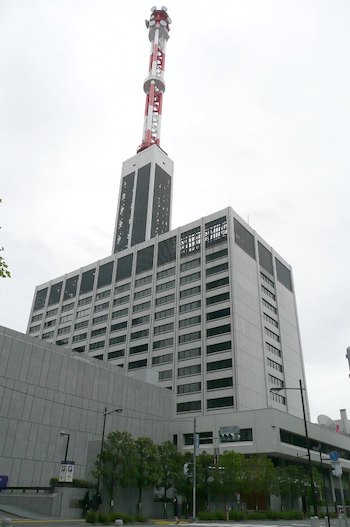Here’s this week’s Media Mix, which is about the huge amount of money spent to clean up the area surrounding the crippled Fukushima Daiichi nuclear plant, and the graft that has resulted. At one point in the column I use the term “public funds,” which should probably be explained further. According to the NHK Special I cite, tax money was used mainly for mid-term storage of irradiated materials. Everything else related to the cleanup is supposed to be paid for by capital gains made from the government selling Tokyo Electric Power Co. (Tepco) stock. NHK says that the government bought ¥1 trillion worth of Tepco stock at ¥300 per share, and estimates that in order to pay off the cleanup costs they would need to sell that stock at ¥1,500 per share. Unfortunately, the stock hasn’t gone up in price since the government bought it. As of February 20, the price is about one-fourth what it needs to be, so they have simply put off sale of the shares. One expert NHK talked to, a scholar who has done extensive research into nuclear accidents, said that if the stock doesn’t go up in price, then the government will end up using tax money anyway to pay for the cleanup; either that, or Tepco is going to have to cover more of the cost, which means utility bills will go up again. So the public—more specifically, future generations—pays for it either way.
This interesting pay structure was built into the law, and quite recently. Tepco was legally responsible for cleaning up any situations caused by an accident at their facilities, and thus were expected to pay for the Fukushima disaster, but since the job is so huge the government borrowed money and paid for the operations on behalf of Tepco. In turn, all of Japan’s electric power companies are supposed to reimburse the government. But in March 2013, Tepco talked the government into changing the pay structure, convincing it to shoulder more of the burden by saying that making utilities pay for everything is unfair to their stockholders, since nuclear power is a “national policy.” A letter that NHK uncovered from Tepco to METI said that Tepco would not be able to “revive” itself if the government didn’t take more responsibility for the cleanup. Nine months later, the Cabinet decided on the capital gains strategy. According to various officials interviewed by NHK, the government knew that the capital gains plan wouldn’t be able to cover the costs of the cleanup, even before it ballooned out of proportion, but that they had to come up with something quickly “on paper.” As one METI official said, the plan puts the government in a double bind, since in order for the stock to go up appreciably, it has to guarantee not only Tepco’s survival, but its success as a private corporation in the short run. And that, presumably, means getting nuclear power plants back online as soon as possible, a task that has run up against a wall of public opposition.


Philip Brasor: Were you in Japan with Japanese skills eight years ago? If so, did you not hear on the NHK news the tone-of-voice hint that the high wages for clean-up suggested the horror of the work [removing radioactive soil MIND YOU!!] and the unknown but much-feared consequences for the workers whose identity was not kept in any file for comparing future cancer rates etc.? You are listed as dealing only with money issues but the MOTIVATION for increasing the wages is part of the money picture is it not? The bosses could have increased their portion without that filtering down to the workers (a familiar tale of government spending in any country). Now that more than 5 years have elapsed, it is time to try to recover such health data–compared with which, food contamination is a trifle.
We did this before.
https://www.japantimes.co.jp/news/2018/02/17/national/media-national/media-reports-de-romanticize-cleanup-work-fukushima-nuclear-power-plant/
Try as I might I cannot access this article, which appears anyway to refer to the nuke plant itself rather than to mildly radioactive soil (in comparison, only “mildly radioactive”). In the case of badly managed Chernobyl the worst long-term misery seem to have been thyroid cancer frequency increasing among children. One expects less bad results in the Japan case, where “Project X” type concern and creativity is assumed. Ten years is only a bit longer than the HALF-LIFE of Cesium (“8 years” they taught us ten years ago). That means Cesium remains would be still almost half as dangerous as before though far less dangerous than the case of Nagasaki (for example), as far as I could learn. [It was irresponsible for some media to claim a similarity between the TEPCO disaster and the A-Bombs.]
Yet how does the current topic compare with run-off water? Fishermen are worried about the radioactivity of that in the ocean, but soil is different. How?